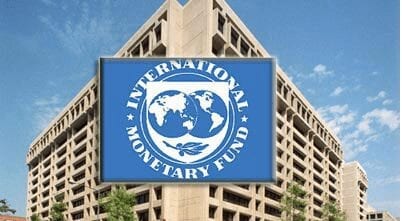IMF: Cost of Doing Business in Nigeria Very High – The International Monetary Fund (IMF) has said that the cost of doing business in Nigeria remains very high, attributing this to the poor electricity supply in the country.
Speaking at the April 2021 sub-Saharan Africa press briefing on Thursday, the Director, African Department at the IMF, Mr Abebe Aemro Selassie, said efforts must be made to address the energy situation in Nigeria to stimulate economic growth.
Yesterday, the Minister of Power, Mr Mamma Sale, had to apologise to Nigerians for the poor electricity supply being experienced at the moment.
He blamed the situation on the break down in 13 power generation plants across the country but assured that engineers were doing everything possible to rectify the issue.
“The Ministry of Power is not unaware of the current power outages/shortages bedevilling many parts of the country. This unfortunate development has drastically affected Power generation, thus effectively minimizing the national grid,” he had said in a statement issued by his media aide, Mr Aaron Artimas.
Read also: IMF predicts 5.2% decline in Nigeria’s GDP in 2020
To avoid a situation like this, Mr Selassie has advised the federal government to urgently come up with reforms in the energy sector and the issues looked into holistically.
“I think reforms in the energy sector are going to be paramount. The cost of doing business [in Nigeria] is very high on account of the inefficiencies in the energy sector, power supply interruptions and the famous recourse of the use of highly inefficient and harmful generator use up and down the country.
“Again, getting power supply, getting policies to make sure that Nigeria resolves this problem once and for all, I think, is also paramount,” the IMF senior staff said.
He also urged the government to look into two other reforms, including “macroeconomic policy calibration,” noting that “things like creating deep and liquid foreign exchange markets will be important.”
On the third reform, Mr Selassie said it is the “fiscal space,” which he emphasised that “needs to be created through domestic revenue mobilisation to pay for investments in health, in education, in infrastructure, which Nigeria swiftly needs.”
However, he expressed optimism that Nigeria has the potential to meet the 2.5 per cent economic growth projection of the IMF for 2021.
“We are seeing quite a lot of countries going through recovery this year, simply by virtue of the fact that economic activity which had, by design, been held back through the containment measures countries needed to adopt last year is now going to achieve results, provided that the pandemic continues to remain under control.
“And so, that will give strong growth outcomes this year in many cases. This is very different from saying that the fundamental drivers of growth over the medium to long term have been improved in a dramatic way, allowing stronger growth. So, that’s a point I would stress,” he stated.































